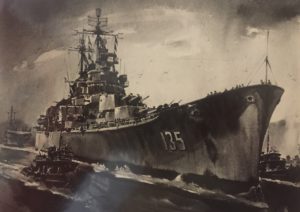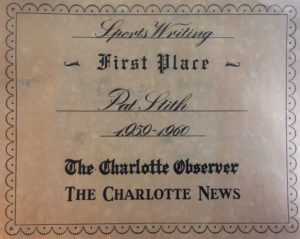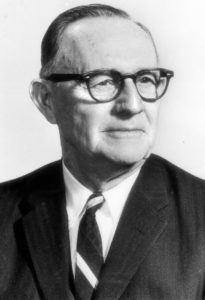The USS Los Angeles was at sea off the coast of Japan and, except for sailors who were standing watch, the crew was asleep, when someone turned the lights on in our berthing compartment and ordered us to get up, dress, and muster.

Lights went on all over the ship –the entire crew, rousted out of their racks, was mustering on deck.
One of our shipmates was missing.
If he wasn’t aboard ship, then he must overboard, which meant the Los Angeles and her escorts would turn around and try to find him.
But was he overboard?
We were ordered to search everywhere, including our lockers — including the small drawers in our lockers where we kept our wallets — everywhere.
The man we were looking for owed money to shipmates who charged an interest rate that would have made the mafia blush — you borrowed $5, you owed $7 on payday.
This was payday and the missing man hadn’t paid up, couldn’t pay up. He owed so much to so many and the interest on his debts was accumulating so fast, his whole paycheck wouldn’t cover the interest.
Had he gone into hiding?
Yes!
He was found laying on a shelf in the ship’s galley, behind a row of canned goods.
Postscript: The missing man was confined for his own safety until we returned to port and then he was transferred. No one admitted loaning him money and charging interest, which was against Navy regulations.
Coming Monday: Ha, Ha, Ha!
 When I was 17-year-old senior I won a sports writing contest for high school students, a contest sponsored by
When I was 17-year-old senior I won a sports writing contest for high school students, a contest sponsored by 